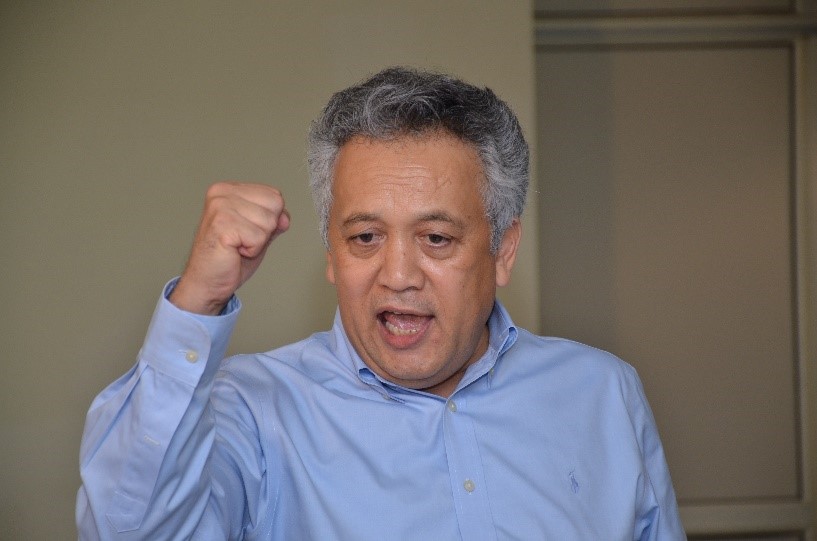
Being Good for Goodness sake.
An article by Vijay Batra
The difficulty of being good, a book authored by Dr. Gurcharan Das focuses on why to be good in living our lives and why most of us are inhibited to be good.
In an interview Dr. Gurucharan Das shared an anecdote about a group of college students who had gone to Goa. While they were at the beach, a small boy was swept into the sea by a wave, and one of the college students plunged after him and swam frantically and saved the small boy from drowning. When things settled down, people asked the college student, what triggered him to do such a courageous act. “He replied, sheepishly, I was trying to impress a girl who was in the group at the beach.” The girl listening to his answer and remarked “then you did not act because you were courageous, but because of your ulterior motive.” Such situations trigger discussions, the fact that the small boy was saved from drowning is good. The college student who answered honestly is also good, but the fact that he did it to impress a girl takes away some of the “goodness.” What I gathered from Dr. Das’s narration of the anecdote is the reiteration of what ails us, we are driven far more extrinsically than intrinsically.
The truth is that it is difficult to be good, but it is critical that an individual realizes that he or she needs to learn the importance of being good and practice it in a sensible and effective manner.
Swami Vivekanand often alluded to the need of the educated and the wealthy to learn and to propagate the characteristics of being good, first in the family and then spreading out. You and I, instead of being “dejected” by individuals in positions of leadership not fulfilling their mandates, will be better off, if we were to improve ourselves and influence our immediate family members, friends, and colleagues at work to be good and kind to others.
An effective way to learn how to be good is by learning from those who are practicing the habit of being good.
Bhagat Puran Singhji, the Mother Teresa of Punjab, who made his life to take care of the destitute and the abandoned in the Amritsar region. A feature film “Eh Janam Tumahare Lekhe” was released in 2015, please watch the movie.
Bhagat Puran Singh led a phenomenal life, being good, day in and day out, despite challenges. He set up Pingalwara, a house for the destitute. He made it his mission to be good to people who were destitute. In most cases destitute cannot reciprocate in a typical transactional manner, but they do trigger many good things in the person who is good to them.
The film eludes to the point that Bhagat Puran Singhji’s mother conditioned him softly and subtly to be good and kind to others, including animals when Bhagatji was a young child. She would reason and persuade him gently, till he would do it willingly. Bhagat Puran Singh had mastered the habit of being good. Parenting essentially is to nurture the mind of the child to be good.
The movie has many poignant moments. In one scene, a young girl child going to a local school came back crying to Bhagat Puran Singh and said, “fellow students tease me as I am an orphan.” Bhagatji accompanies the young girl to school and confronts the school Principal. The Principal is respectful but tries to justify that it is the students who tease the young girl, not the teachers. Bhagatji emphatically exhorts the Principal, “You are the teachers, teach the students to appreciate the fact that nobody is an orphan because every child is born of a father and mother.”
Another powerful example of being good to others is of Dr. Murthy, the 19th Surgeon General of United States of America, who served during the President Obama administration.
He brought to attention the serious ailment that plagues the health of many Americans that is not being addressed namely “loneliness.” Loneliness is a result of people not being good to each other.
As a Doctor he experienced patients in America who were living lonely lives. Many patients would be hospitalized and would have no visitors, often when critical decisions were to be taken, the patient would be alone. When they would die, they had no relatives or friends.
Dr. Murthy felt the pain that they were facing of being lonely. He himself had loneliness issues when he was young in school. He would be anxious going to school, not that he was worried about the study part or the teachers but was anxious whether he will have companionship of fellow students during lunch and activity times.
As a Doctor, he started reaching out to patients who were lonely. On occasions, when he would pronounce a patient dead, he would stand in silence and commune with the void of their death.
In his book he has emphasized that the reason why we are lonely is because with advancement in technology we can survive physiologically by ourselves, but our psychological needs of interdependence and connectedness remains, which often leads to loneliness.
You and I stand to benefit by knowing and learning from Bhagat Puran Singhji and Dr. Murthy, individuals who either were conditioned by their parents or learnt the importance of being good and practiced in their day to day lives.
Let us learn from the masters to build the capacities to be intrinsically driven to be good.
